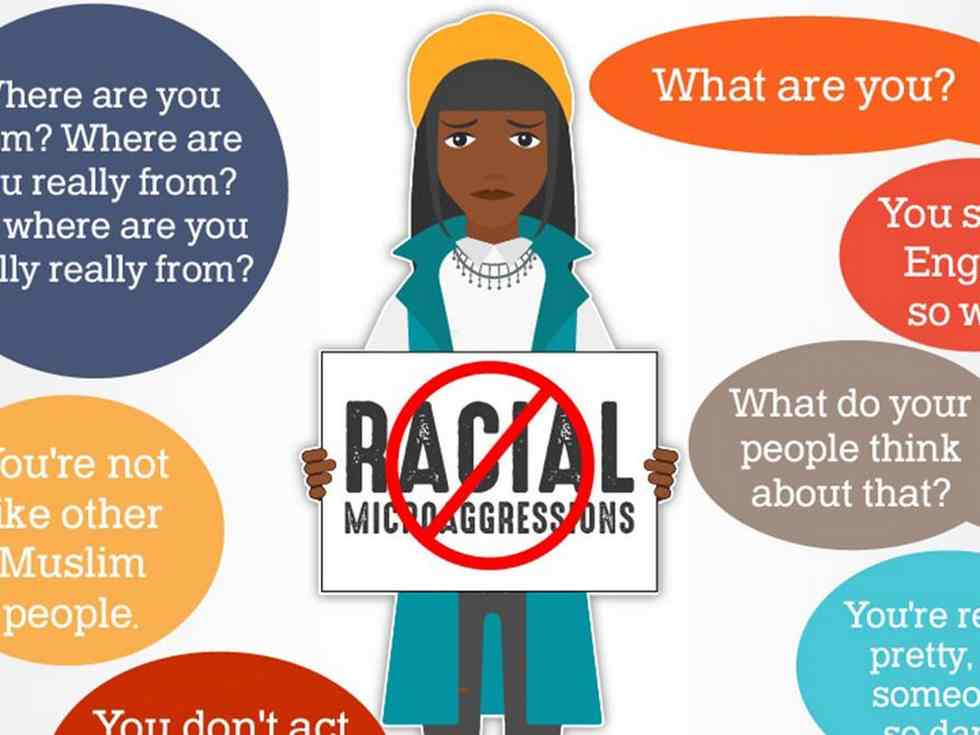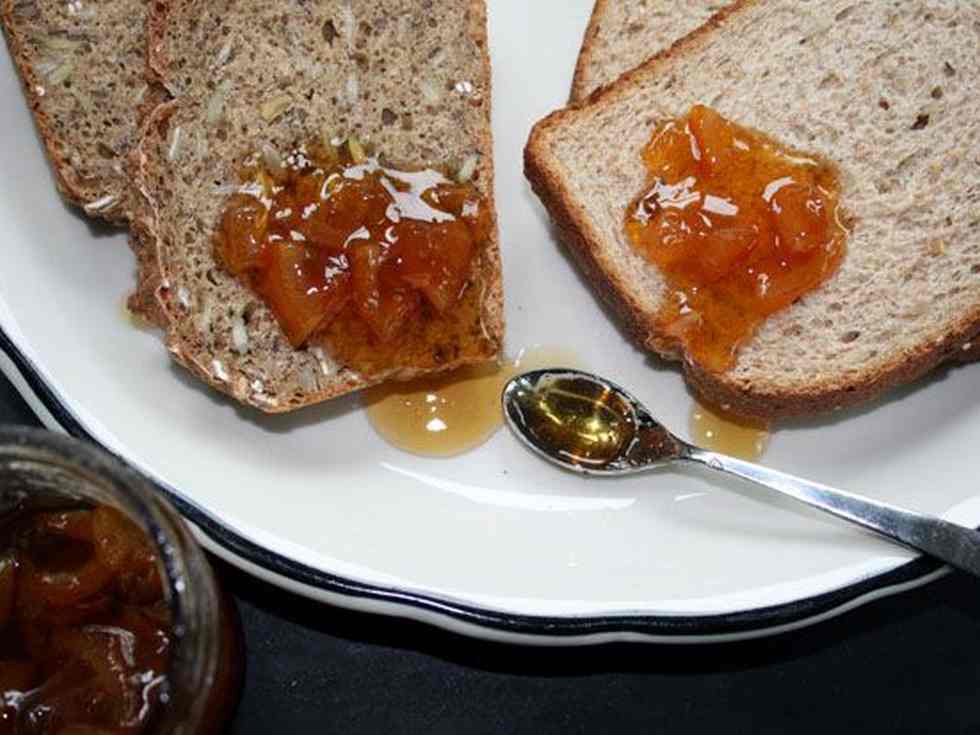
I grew up being requested the identical query almost each time I met somebody new: "The place are you from?"
I might reply, "I am from Washington D.C."
There was one thing about this reply that was unsatisfactory to whomever had requested. So, they might strive once more: "Oh, however I imply – like, the place are you from?" They usually squinted their eyes at this level for emphasis.
Finally, I realized that to many individuals I’ve racially ambiguous options. I took these moments as alternatives. I might ask questions on their assumptions in return, and it could flip right into a dialogue. Later after I began school, my classmates and I had been taught that these sorts of questions on the place persons are from are "offensive" and needs to be prevented.
A couple of years later, I realized a phrase for it: "microaggressions."
The time period arose from an effort to outline the methods by which racism was altering, from extra overt and public acts, to smaller day-to-day slights.
However what precisely is a microaggression, and is what I skilled essentially a results of racism?
Microaggression Versus Macroagression
The concept that racism is manifesting in much less seen methods has spawned new areas of analysis. At Washington College in St. Louis, there’s an entire lab stuffed with researchers who’re attempting to grasp hidden psychological biases — what are sometimes called "implicit biases."
Professor Calvin Lai runs the Variety Science Lab at Washington College and says that folks usually aren’t consciously conscious that they harbor destructive ideas about sure teams.
These underlying ideas, whether or not we’re conscious of them or not, affect our conduct. Lai contains microaggressions amongst these behaviors, and defines microaggressions as "verbal, behavioral or environmental negativity based mostly on somebody’s group membership, be it race, gender, or in any other case."
The one that first coined the time period "microaggression" was Harvard psychiatrist Chester Pierce again in 1970. Pierce wrote about how white racial aggression and violence towards blacks works to maintain blacks down within the U.S. He wrote that microaggressions are subtler in comparison with "a gross, dramatic, apparent macro-aggression similar to lynching," however in the identical method are supposed to "brutalize, degrade, abuse, and humiliate one other group of people." Pierce described racism as a psychological sickness, and argued that understanding these "small, steady bombardments" is important to treating the illness.
Since then, researchers have sought to additional outline microaggressions and their penalties. For instance, psychologist Derald Wing Sue and his collaborators revealed a landmark paper in 2007 that laid out a whole framework for classifying several types of microaggressions and their impression. They gave examples of microaggressions similar to being adopted in a retailer or receiving poor service in a restaurant. They identified that even an expression like "I consider essentially the most certified particular person ought to get the job " might be thought of a microaggression in sure contexts, as an illustration, to disparage affirmative motion. And analysis hyperlinks microaggressions to destructive psychological well being outcomes similar to decrease life satisfaction and elevated despair.
The microaggression terminology has progressively seeped into conversations about race within the mainstream media, school campuses and the office. A number of academic interventions have cropped as much as meet the demand for options. For instance, in 2018 Starbucks introduced it could shut its U.S. shops to offer anti-bias coaching to staff following an incident by which two black males had been arrested at a retailer in Philadelphia after they declined to purchase something however wished to attend within the cafe to satisfy a colleague.
Are Folks Generally Simply Overly Delicate?
Use of the time period "microaggression" has additionally been met with vital criticism. Some students argue that whereas it might be true that subtler types of prejudice exist, the sphere has an extended technique to go in gathering strong proof to assist the theories proposed by Sue and others. Till then, they are saying it is untimely for anybody to make use of the time period microaggression, not to mention declare they’ve already developed efficient interventions.
"If Minority Group Member A interprets an ambiguous assertion directed towards her—similar to ‘I notice that you did not have the identical academic alternatives as most Whites, so I can perceive why the primary 12 months of school has been difficult for you’ — as patronizing or not directly hostile, whereas Minority Group Member B interprets it as supportive or useful, ought to it’s labeled as a microaggression? The MRP [microaggression research program] literature presents scant steering on this regard," writes psychologist Scott O. Lilienfield of Emory College.
Different critics take subject with the concept that such small acts trigger severe hurt, particularly when they don’t seem to be ill-intended. They argue that some racial and ethnic minorities are being overly delicate. However a examine revealed in March 2019 discovered robust proof that ethnic minorities aren’t any extra delicate to slights than white folks. Each teams skilled the identical lower in happiness and life satisfaction after microaggressions. It is simply that minorities expertise microaggressions extra usually.
Lai of the Variety Science Lab agrees with critics who say that the time period is a bit fuzzy. It is almost unimaginable to show somebody’s intentions, and quite a bit is dependent upon the context. What’s affordable, Lai says, is considering your native context after which doing analysis. For instance, for those who’re a white physician who primarily works in an African-American group, then you must educate your self so to present culturally competent service.
"You won’t be appearing out of implicit bias, it’s possible you’ll simply be ignorant," Lai says.
But, having a vocabulary to explain awkward conditions is beneficial says Agnes An, an promoting skilled who lives in New York Metropolis. She’s Korean American and says she has skilled microaggressions in a wide range of contexts — from the office to the relationship scene.
"Folks will ask the place I am from and do not ask me the rest, that is it," she says. "Or after I reply, that is the rest of the dialog, ‘Oh I like Okay-Pop and kimchee,’ when there are such a lot of different facets of me."
She says this occurred quite a bit when she was rising up, however the time period "microaggression" hadn’t gone mainstream. She simply ended up strolling away from these interactions feeling unhealthy. Now, An feels empowered to talk up.
"I admire that folks have coined one thing as a result of it is a recognition that it really occurred. It makes it actual, and permits folks to speak about it with one another," she says.
Now That is Attention-grabbing
Sue and his colleagues argued that microaggressions aren’t restricted to human interactions, and may embrace interactions with the surroundings. One instance they used of their 2007 paper was of a school or college with buildings all named after white heterosexual upper-class males. The implicit message? "You do not belong/You will not succeed right here."

